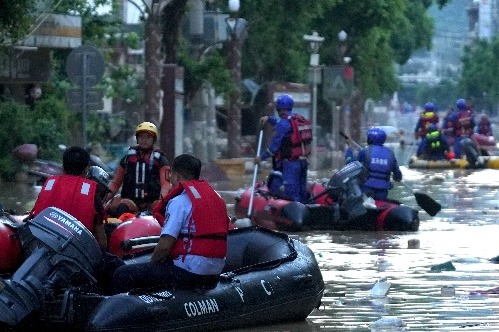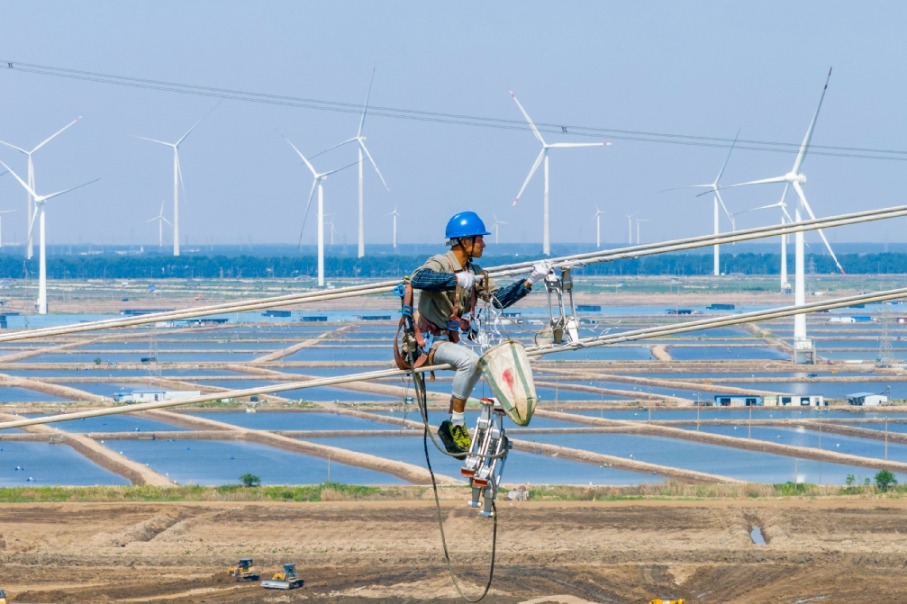A micro start for the poor in emerging markets

Apart from helming local insurer FWD Hong Kong, David Wong Tai-wai is dedicated to the development of micro-insurance in immature markets in Asia.
He serves as an advisor under the United Nations Development Program for ASEAN (the Association of Southeast Asian Nations) regulators on rural financial inclusion and micro-insurance development.
Wong has had a long relationship with member states of ASEAN since 2004 when his former employer Manulife dispatched him to establish a foothold in Southeast Asia, including Malaysia, Vietnam, Cambodia and the Philippines. His office in Hong Kong testifies to the relationship - its walls adorned with paintings by Cambodian and Vietnamese artists, depicting the exotic landscapes in these emerging countries.
He says while the insurance markets in Japan and Hong Kong are already in place, those in Cambodia, Burma and other developing countries are just opening up, with an infrastructure network that has yet to come on.
"In these countries, the city and rural areas have very different economies. The banks or insurance companies prefer to set up branches in the big cities instead of the countryside, so the distribution and payment channels in those poor areas are not ready yet. That's the biggest problem. In such a situation, how to protect the low-income people against perils? Micro-insurance is what we want to push in these developing countries," says Wong.

Micro-insurance refers to insurance with low premiums and coverage, usually targeting a population ignored by mainstream commercial and social insurance programs.
"Typically, the premium for micro-insurance is $10 to $20 annually, with coverage of $1,000. But, due to the poor transportation system, insurance agents need to ride a motorbike for three days to go to the village, just to take that $10 premium? That's the distribution problem. On the payment side, as most of these places are still a cash society, companies need to hire collectors to get the money and even if there's a bank, it will charge a $1.5 handling fee for a $20 transfer. The whole payment procedure just doesn't work."
Fortunately, with the development of digital technology, things will get much easier. Wong intends to promote online purchasing of insurance products and the use of digital wallets in those countries as his next step.
"The odds for success are much higher if we use the internet to promote financial inclusion because, even in Vietnam, 80 percent of the people in the rural areas use mobile phones. If digital wallets become popular, the selling and payment procedures would be far more effective and would be a very big help in terms of promoting financial inclusion and micro insurance."
Although the digital revolution can bridge the gap between villagers and insurance, most villagers don't even know what insurance is, so educating the local people has been Wong's major task in the past few years.
"People in Southeast Asian countries are coming to understand the merits of insurance, and then we can build up the distribution and payment channels before starting to make an impact," he says.
According to Wong, he has urged ASEAN governments to legalize the whole distribution procedure and regulate insurance companies, while agents need to get a license before they can sell insurance policies. As insurance is a regulated industry in every country, regulatory consistency with other markets is important to the domestic insurance market development.
Regulators in ASEAN countries have introduced regulations on many fronts. The Philippines will launch its new RBC (Risk-Based Capital)-2 framework next year and continue to synchronize its solvency regulations around risk-based capital frameworks that have been established in Europe, while Singapore, Malaysia, and several other countries already have regulations on cyber security, according to the 2017 Asia-Pacific insurance outlook report by London-based accounting firm Ernst & Young.
cherrylin@chinadailyhk.com
| FWD executive David Wong Tai-wai says the insurance group had set out as a pan-Asia insurer and its goal is to cover most Asian countries. Roy Liu / China Daily |
(HK Edition 06/02/2017 page9)
Today's Top News
- Beijing warns countries against signing trade deals with US that hurt Chinese interests
- AI shouldn't undermine humanity's progress
- Xi urges villagers in Xizang to uphold ethnic solidarity
- Digital tax sparks breakdown in US-Canada trade talks
- Expert debunks Lai's 'four elements' argument for Taiwan's so-called statehood
- China opposes any tariff deal made at its expense: commerce ministry































